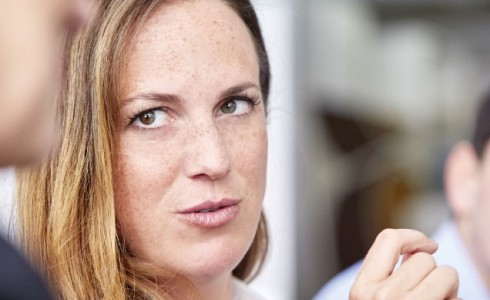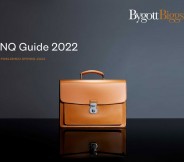March 08, 2019
#GirlPower #IWD2019 #BygottBiggs25

Bygott Biggs will be celebrating 25 years in business this year and on International Women's Day 2019 we asked Kelly Barker, Associate Director, to let us have her observations on the changes she has seen during her time in legal recruitment.
Bygott Biggs celebrates its 25 year anniversary this year. What a milestone! I’ve only been here for 1½ of those years but I’m in no doubt about why the business has enjoyed such success and longevity. The emphasis here is firmly on integrity over KPIs. The focus is long-term relationships over short-term fee gains. This is something of a rare find in recruitment!
Whilst I haven’t been recruiting lawyers for 25 years (yet!) it is something I’ve been doing for the last 15 years or so and I’ve been asked to reflect on some of the biggest changes I’ve seen during my time in legal recruitment.
The ‘or so’ refers to a career break while I had my three children. It didn’t take me too long to realise it was easier to negotiate with lawyers than toddlers and, on my return to work, I was delighted to see there had been such a huge leap forward in terms of flexible working, which brings me neatly to my first point.
Flexibility, Presenteeism & Work/Life Balance
Wow! What a shift we’ve seen in the last few years. When I worked in the City, my focus was moving lawyers out of London and into large regional firms. I’d explain to those firms that lawyers weren’t just looking for better prospects, if they were taking a huge pay cut moving out of the City, they wanted to address their work/life balance too.
Without fail, firms thought it was enough to trot out the old line about a lack of ‘jacket on the back of chair’ culture.
I can’t tell you the number of times I had Partners sit and tell me (with a straight face) that someone’s work/life balance would immediately be improved by moving to Milton Keynes, for example. As if that was enough to really sell the opportunity!
Granted, you might get more bang for your buck property-wise and you would cut out the dreaded face-in-the armpit tube commute, but you can imagine how (un)successful this sales pitch was.
There used to be a real culture of presenteeism – clients and Partners thought that in order to be working effectively, a lawyer must be physically present in the office. How different things are now! Whilst there is still a long way to go (some might say that many firms talk the talk but don’t walk the walk) it’s great that firms are increasingly supporting and encouraging flexible working.
As a working mum it’s great that I can fit work around my other commitments. My dogs and children are regular visitors to the Bygott Biggs office (the dogs are better trained and make less mess). My children’s miniature Shetland even made a visit one day to mow the front lawn!
What’s fantastic though is that the push for flexibility isn’t just for women. Today’s workforce not only want flexibility, we expect it. Whether it’s been driven by better technology, millennials or a bid to hot desk and save on office space costs, it can only be a good thing as far as I’m concerned.
It’s great to see law firms catching up and using flexibility as a tool to attract and retain the best people. Numerous studies have shown it leads to an increase in staff commitment and empowerment, reduced stress levels and increased productivity. Those firms which lag behind in adapting to this (and those who merely pay lip service to flexibility rather than properly embracing it) risk losing out on the best talent.
Corporate Social Responsibility and Social Engagement
CSR was very rarely mentioned when I first moved into legal recruitment and it’s great to see that it is now high up on the agenda for many law firms (if for no other reason that it is higher on the agenda in society generally).
Whether firms support their lawyers to undertake pro bono work or allocate a certain number of days per year to spend on the ground volunteering with charities, it’s important that firms are doing (and seen to be doing) this work. Employees increasingly want to make a difference (or work for a firm that makes a difference) as well as make money.
I was delighted to place a lawyer into a dedicated Pro Bono / Social Enterprise team into the London office of a global elite firm recently. The fact that these teams exist shows just how far we have come.
It’s been great to see an increase in social responsibility on candidates’ CVs and huge levels of social engagement on my LinkedIn feed too (although all the images of delicious cakes don’t do anything to help me try to curb my sweet tooth!).
For me personally, I’m grateful that Bygott Biggs takes its CSR seriously. Whether that’s working ethically (at the outset I alluded to the fact that we put long-term purpose – a bespoke service characterised by integrity, honesty and discretion – over short-term profit) or supporting Smart Works.
Smart works is an amazing charity which offers a dressing and coaching service for long term unemployed women (www.smartworks.org.uk) and I’ve been supported and encouraged by the business to organise and host events, act as a corporate network ambassador, organise clothing drives and do pro bono interview coaching.
Girl Power
Today is International Women’s Day – yay!
I work in a business founded and managed by a woman – yay!
2019 isn’t just a big year for Bygott Biggs, it marks 100 years of women in the law – yay!
Anyone who knows me knows that I’m all about #womensupportingwomen so it should be no surprise that my last observation relates to women in the law.
Unfortunately, this is an area which hasn’t seen as much change as I would have liked. Even when I qualified as solicitor in 2001 the number of men and women entering the profession was broadly equal. The balance has since tipped in favour of women. Yet why is it that at the top levels of the vast majority of UK law firms, it’s still a man’s world?
There has been much talk recently of the challenges which contribute to gender disparity at partnership level. There are lots of possible reasons (and this is a complex area) but it is important we are having the conversations and actually doing something about it.
There is evidence to suggest that once the number of female partners reaches tipping point (said to be 30%) and there is a critical mass of women at the top, an improved gender balance will become self-perpetuating as these women partners act as role models for trainees and associates. A female NQ I placed recently had two great offers but opted to go with the team led by a working mother because she felt she was such a positive role model.
All five of the magic circle firms and a number of other City and national firms have agreed to a voluntary target of between 20-30% female partners in the next few years. I just hope that when I next take some time to reflect on changes during my time in legal recruitment, I’m able to say there’s been real change in this area.














